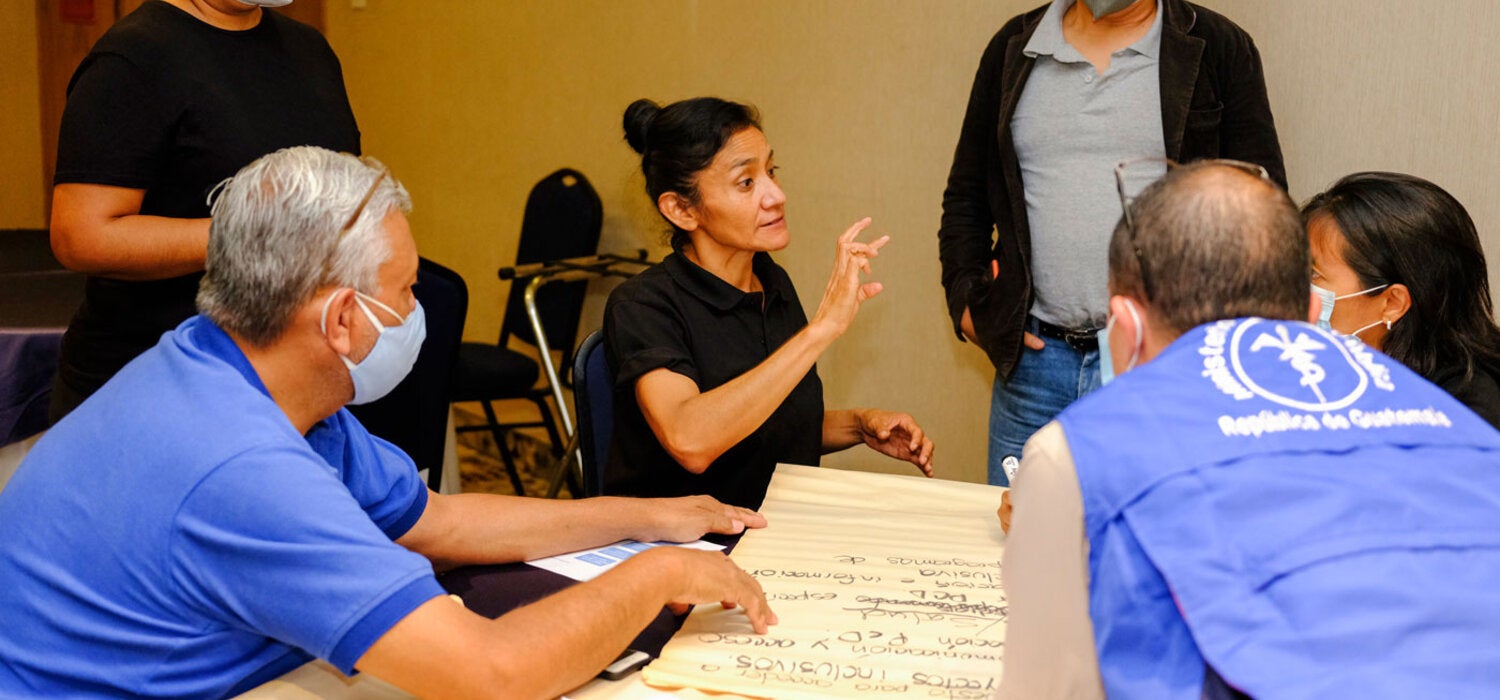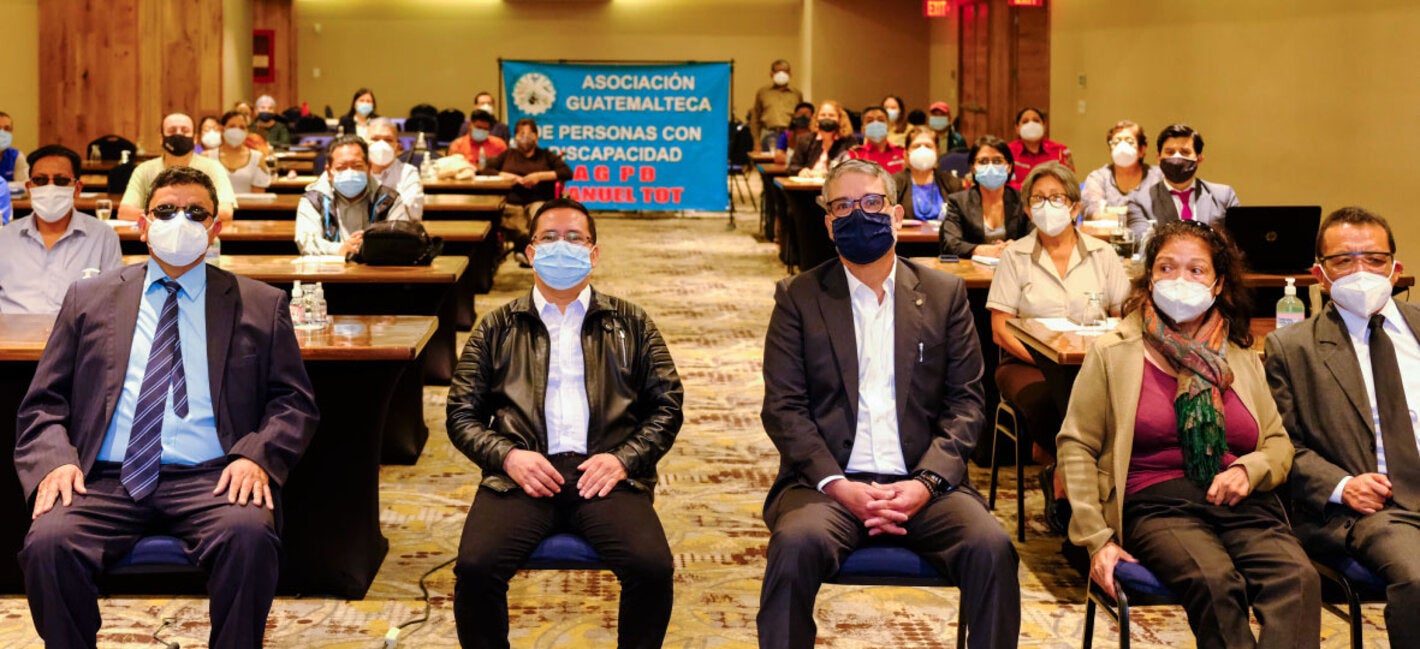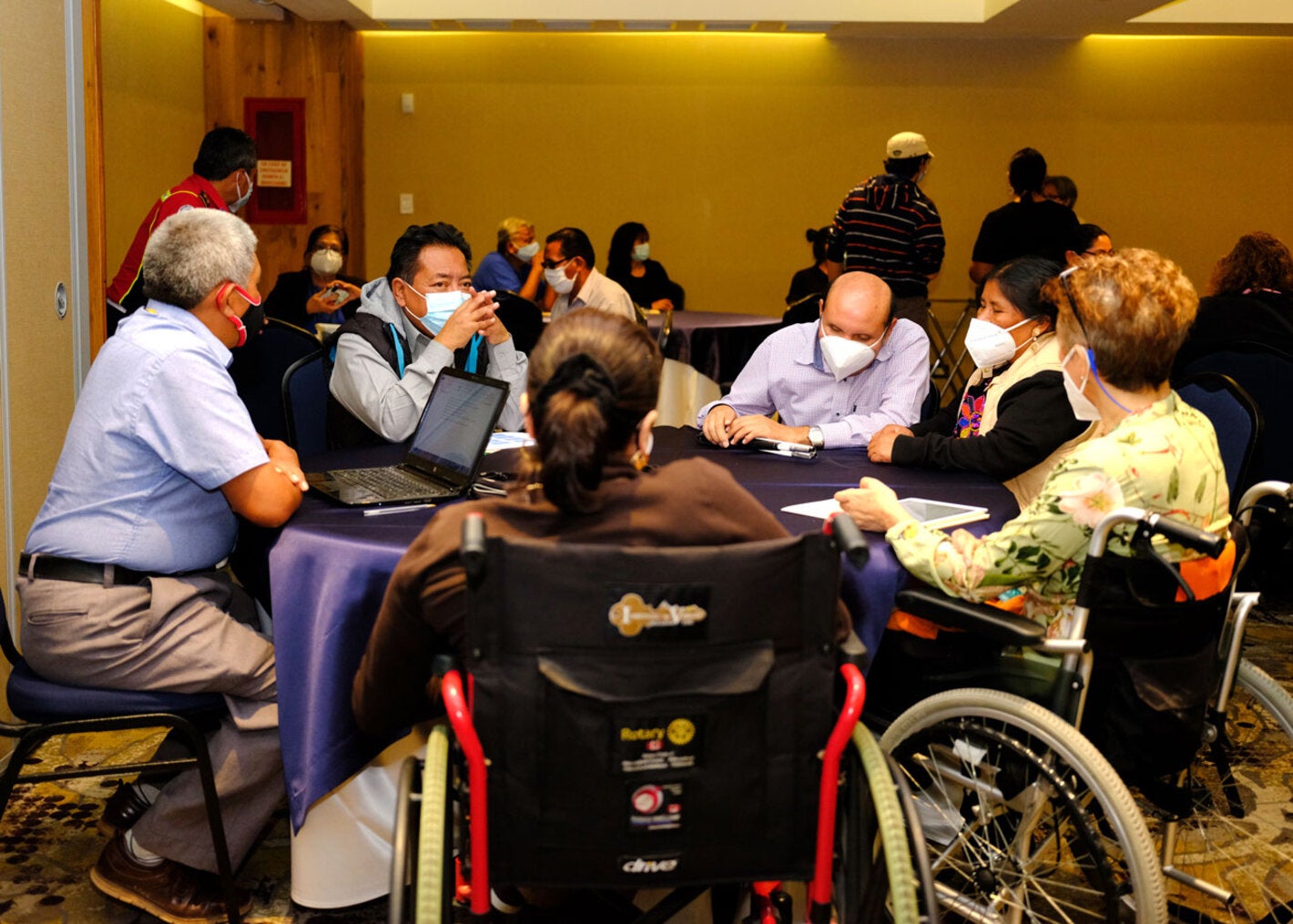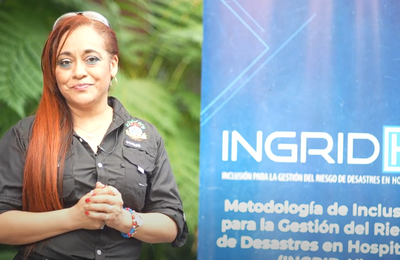Nothing about us, without us.
Thanks to PAHO/WHO Guatemala technical coordination, a temporary mechanism called the National Coalition on Inclusive Risk Management, was established and included partners such as the Ministry of Health, 24 civil society organizations (CSOs) representing PWDs, and a range of public institutions and relevant development actors related to disabilities, health management and humanitarian aid such as the National Coordination for Disaster Reduction, the National Council for the Care of Persons with Disabilities and Guatemala’s Red Cross.
As a result of this National Coalition, the National Technical Roundtable for Strengthening the Inclusion of Persons with Disability in Health Risk Management, a permanent participatory governance structure, was developed. This National Roundtable is led by the Ministry of Health, CSOs, and the same partners of the Coalition to promote the coordination among the different stakeholders and ensure that risk management plans comprehensively include the needs and experiences of PWDs. This inclusive governance mechanism centered on Health and Risk Management is the first of its kind in Guatemala.
"Our rights approach is based on 'nothing about us, without us'.
We are asking for barriers to be removed and allow us
to mobilize ourselves, get jobs, study, and live a normal life."
Kathy Pico, Public account and athlete (Person with disability)
A Ministerial agreement to formalize this Inclusive Technical Roundtable was approved in January 2022 by the Ministry of Health of Guatemala. This agreement will ensure that the National Roundtable has continuity and sustainability to create inclusive programs, plans, and projects in the short, medium, and long terms.




